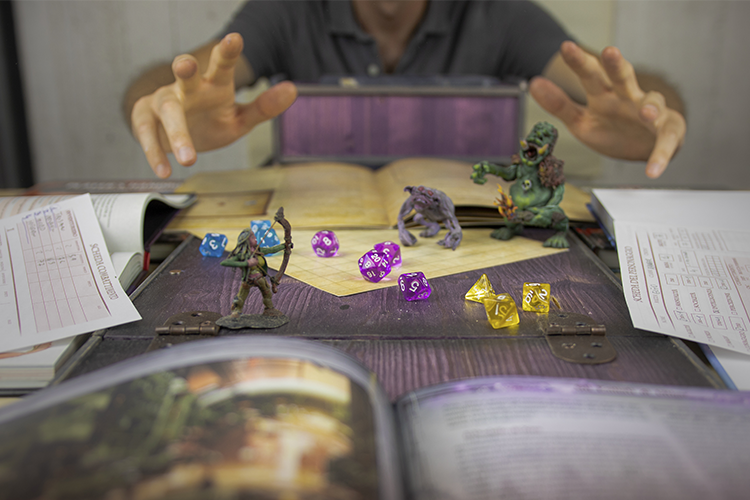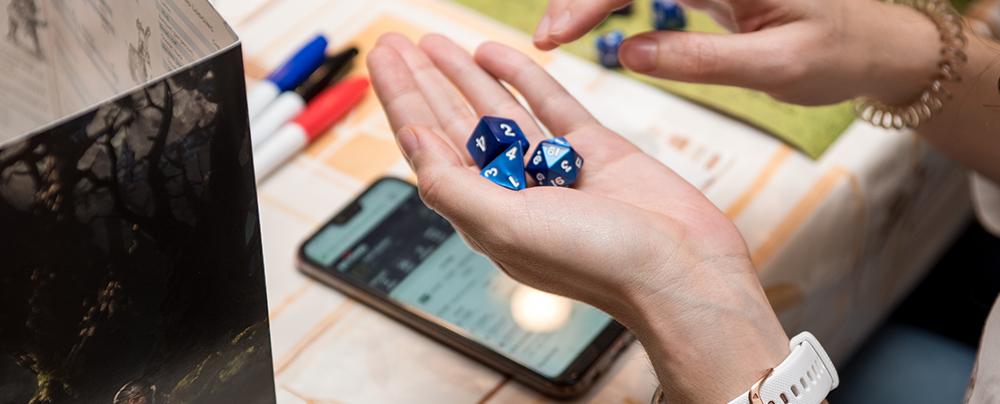Managing the mountain of content a dungeon master creates can be a daunting task. Tracking campaign notes, npc statistics, maps and locations, not to mention the notes you scribble during a session for the antics your players will get up to. A content management system can help keep you organized and allow you to focus more on your game.
When taking the Dungeon Master seat for a tabletop campaign, it can be a lifesaver to have a place to organize your thoughts.
Whether it’s planning out the next steps of your shared story, storing a list of names and pictures for the non-player character (NPC) your players made you come up with on the spot, drafting a code of conduct for the table to follow, or any of the myriad of other things you might want to quickly reference or share with your players, having it all in the same place can make getting to it quick and easy.
I’m not here to tell you how to create your campaign but just to give some organizational tips that I’ve found useful.
Getting Started:
Once you’ve got the idea for your game and found a group of people to play with, it can be helpful to start with session zero. Here, you and your players can come up with some rules regarding what is acceptable and unacceptable at the table. These rules can range from no phones out at the table or don’t walk away in the middle of a scene to topics that are off limits so everyone can have a good time. Once you’ve got that list, make sure everyone has access to review it if the need arises, or if you have a new person join the table down the road.
Another tip I’ve used for session zero is to come up with a questionnaire for the players, ask them about what they would like to do or see in the game, but also ask some questions about their character like what’s their deepest fear or favorite meal. Have they ever wronged or been wronged by someone? These get them thinking about the person they are playing and can give you some potential story hooks further down the road.
Feedback Forms:
If you commonly host games for different people, it may be helpful to come up with a form to send to them asking how they felt about the session. What was their favorite thing someone else did that session, or the favorite thing they did themselves? What was their least favorite part of the night? I’ve found that most players are too polite to give negative feedback when asked at the end of the session, but if you can send them an anonymous form you sometimes get more honest feedback that you can use to grow as a Game Master and to make the game more enjoyable for everyone.
Searching Through Notes:
Being able to quickly search your notes to find out when the party encountered Gresh the outcast Orc warrior can help with planning the next steps or just answering a player’s question at the table. A digital search can jump you straight to your notes from Sessions 3, 6 and 10, and also see Gresh’s stats and his picture in the results. Then, you can find out they first heard rumors about him in Session 3 while talking to a passing traveler on the road, and then they met some people in an inn who were saved by him in Session 6, before he came to the party’s aid during a dicey combat in Session 10.
Digital Maps:
Searches don’t just need to be for your notes. Maybe you create your own digital maps or spend your time perusing the internet for other people’s maps that you know will come in handy later. You could search for the map by name or assign it tags so you can find it quickly later on. If you found a map for a tavern that you fell in love with, tag it with the tavern’s name and what village you put it in and it is only a search away when you need it.
Manage your content on your terms:
The longer you run games for people, the more notes, stories, maps, and pictures you’ll accumulate. All of these files can get out of hand quickly without a content management tool to help keep the information organized. Be it by campaign, world, date, or even gaming system. You will also more than likely play with some of the same people throughout your gaming career which could lead you to organize information by the players involved.
A good tool will give you the flexibility to organize your files however you want. While also allowing you to quickly find the information and easily share it with your players when they need it. With a solid digital solution you can access your notes using your computer, tablet, or smartphone from anywhere as long as you have an internet connection.


